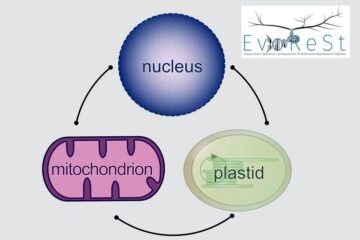What would you do with £300 million*?

Londoners will have the chance next week to find out how decisions are made for funding environmental science and give their views on how they think a £300 million budget should be spent.
The Natural Environment Research Council (NERC) spends that amount each year on environmental science. Funding comes from the public purse so people have a right to voice their opinions on how they think some of the money should be spent.
For the past three years NERC has opened up one of its Council meetings so that the public can see how decisions about funding priorities are made and have the chance to discuss issues that are important to them. This year the meeting will be held on Thursday, 25 November at the Copthorne Tara Hotel in Kensington.
The agenda for this meeting includes the ’greening’ of NERC and a review of its public engagement activities. NERC has decided to monitor the impact its science, staff and facilities have on the environment and take steps to reduce its environmental footprint . How will its Council take this commitment forward? And does NERC do enough to engage with members of the public to find out what environmental issues concern them?
NERC’s Chief Executive, Professor John Lawton, said, „People are becoming more and more aware of their environment and how things like climate change will affect them. They can make a valuable contribution to the discussions and their comments may well help us to shape some of the decisions we make in the months and years to come. „
Media Contact
Weitere Informationen:
http://www.nerc.ac.ukAlle Nachrichten aus der Kategorie: Ökologie Umwelt- Naturschutz
Dieser Themenkomplex befasst sich primär mit den Wechselbeziehungen zwischen Organismen und den auf sie wirkenden Umweltfaktoren, aber auch im weiteren Sinn zwischen einzelnen unbelebten Umweltfaktoren.
Der innovations report bietet Ihnen interessante Berichte und Artikel, unter anderem zu den Teilbereichen: Klimaschutz, Landschaftsschutzgebiete, Ökosysteme, Naturparks sowie zu Untersuchungen der Leistungsfähigkeit des Naturhaushaltes.
Neueste Beiträge

Neuartiges Material für nachhaltiges Bauen
Innovativer Werkstoff für eine energieeffiziente Architektur: Forschende des Karlsruher Instituts für Technologie (KIT) stellen in der aktuellen Ausgabe der Fachzeitschrift Nature Communications ein polymerbasiertes Material mit besonderen Eigenschaften vor. Das…

Neues Antibiotikum gegen Erreger der Flussblindheit und Lymphatischen Filariose
Prof. Achim Hoerauf, Direktor des Instituts für Medizinische Mikrobiologie, Immunologie und Parasitologie des Universitätsklinikums Bonn (UKB), und seinem Team ist es in Kollaboration mit der Abteilung Pharmazeutische Technologie und Biopharmazie…

Evolutionäre Genomik: Folgen biodiverser Fortpflanzungssysteme
Die Deutsche Forschungsgemeinschaft (DFG) fördert die Einrichtung eines neuen Graduiertenkollegs (GRK) in der Biologie an der Universität Göttingen. Das GRK mit dem Titel „Evolutionary Genomics: Consequences of Biodiverse Reproductive Systems…





















